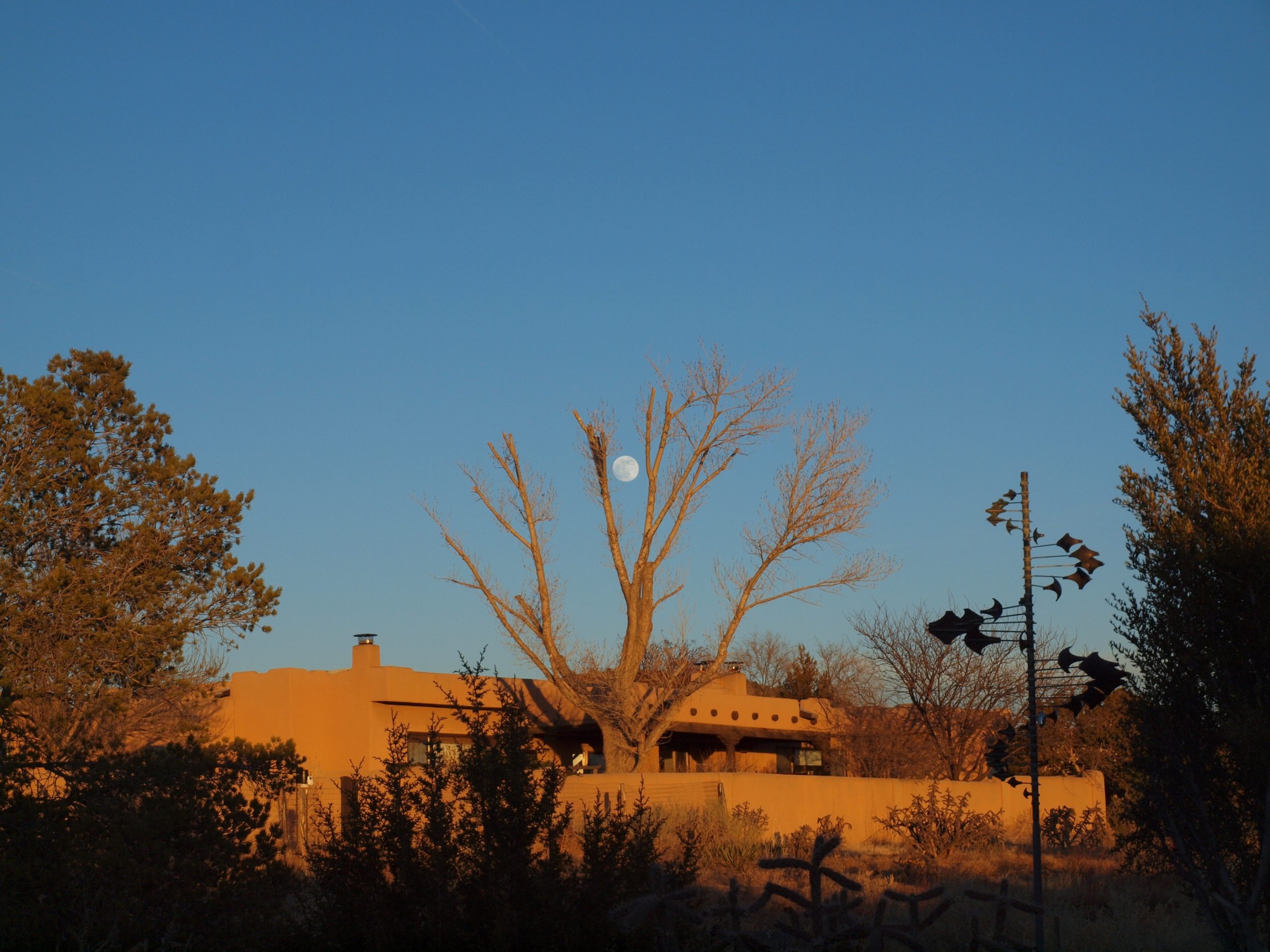

RITA ® Award-Winning Author of Fantasy Romance


This hawk was in the tree across the road. Love my new telephoto lens!
David and I were talking yesterday about the value of happiness and making choices to be happy. Now, not everyone really values happiness as a top priority. Sure – people say they want to be happy, but often they value other things above that. Being admired or respected, making our families happy, fitting in with the crowd. If we look critically at our daily choices, we can see that we often choose to do something that doesn’t make us happy because we think the other thing is more important.
For example, a lot of us woke up this morning earlier than we wanted to. It might have made us happy to sleep longer, but maybe there are children who need to be cared for and that’s more important. Or we have to get to that job on time, so we can be paid, which can be a factor in long-term happiness. So, sometimes we make a considered choice to put someone else’s needs above our own happiness or we sacrifice the short term in favor of the long term.
But we can also get in the habit of capitulating to the “shoulds.” All those things that we think we should do, whether they make us happy or not. It’s easy to fall into that pattern of all the little responsibilities and debts that drive our daily decisions.
David mentioned it because he’s been reading Anthony de Mello, who made a deliberate decision to be happy. That’s what he wanted out of life. For every choice he encountered, he weighed whether it would lead to happiness.
This is harder than it sounds. For instance, he ultimately told his best friend they could no longer spend time together, because the friend didn’t make him happy. It’s a hard, strong line to draw and many of us would flinch at such a decision because of all the voices whispering that it’s selfish. Choosing one’s own happiness over someone else’s will always be labeled selfish. It’s up to us to decide which we value more: being happy or being thought an unselfish person.
It got me thinking though, that it doesn’t always have to be huge, life-changing decisions. In everything I do all day, I can choose those things that lead to happiness for me. Throughout my day, there are many opportunities to read rants and encounter unpleasant news and thoughts. I don’t have to look at them. I can focus instead on those things that I believe do make me happy. I can create a tesseract of happiness.
By little, incremental choices, I think I can find ways to have a happy life. Which I do think is the most important thing for me.
Now I’m picturing what a tesseract of happiness would look like.
 I hope this threatening sky promises rain -we desperately need it.
I hope this threatening sky promises rain -we desperately need it.
David’s been talking about some of the patients he sees and how the ailments they come in with so clearly reflect how they live their lives.
I think it’s easy to see that those who choose a violent path stand a greater chance of dying a violent death. Live by the sword, die by the sword. It’s a simple matter of percentages. But I think it’s less easy to see that, if we choose to spend our lives in service of our children, then that’s how our lives will look in the end. If we choose not to accept responsibility, then we’ll have no control over anything. My stepdad Dave loves order – thus he’s been in the military and prioritizes creating order.
It’s that aspect of choosing that’s most important. Stepdad Dave doesn’t spend every minute of every day making lists and planning for the future. It’s just his priority. It’s what creates the foundation under everything else. And it’s characteristic of him – enough that we all tease him about his lists.
Kristen Lippert-Martin mentioned on her blog that Virginia Woolf wrote only one hour every day. Not all that much time, out of her 24. And yet, we think of her as a writer. The quintessential writer, for many. That’s because being a writer shaped her life, more than anything else. She made all her choices around that idea and it became her salient characteristic.
I think that’s the key: what we choose to live by is what defines us. The warrior who chooses to live by the sword might retire from the field between wars, but she remains a warrior in her thoughts and actions.
We spend a lot of our lives with things being chosen for us: our families, where we live, our friends, often our professions. In the hustle of day to day, we tend to fall into what other people declare is most important. And we often have to abide by that: children must be fed, paying bosses must receive deliverables. Still, those things don’t have to define us.
Even if we spend only an hour a day writing, we are writers by definition, if we choose that way of life.
Live by the word, die by the word.
 Our big storm finally released its grip, with roaring winds all night, leaving the sky clear and frigid this morning.
Our big storm finally released its grip, with roaring winds all night, leaving the sky clear and frigid this morning.
So, here we are, saying good-bye to 2010 already. Tomorrow the decorations come down. I’ll clean the house and start the year a new. Fresh slate, carrying forward the best of last year and none of the worst.
I’ll try, anyway.
I talked yesterday about the temptation to make plans for big changes in the new year. It feels like a natural demarcation between old and new. And, hell, everyone else is doing it, right?
I’m starting one new thing for the new year. Tomorrow will see the launch of a new blog I’m participating in, The Word Whores. Our credo comes from Moliere:
I’m delighted to be in such amazing company, with six other smart, witty, imaginative and supportive women – all of whom I count as friends, as well as sister writers. Believe me, we all want to do it for money.
But this is a small change in the pattern of my life. I’m adding one blog-post a week. Finite, simple. I cringe when I see people resolving to lose weight, exercise more, write more and fix their love life. Yes, these are all wonderful things to do, but it’s TOO MUCH. The goals are vague. What does more mean? How much weight? What does a good love life consist of?
The problem is, if the goals are vague, then they’re doomed to failure. Because you can never reach “more.” There’s always “more” out there. It’s like always jam tomorrow.
The success gurus will tell you to keep your goals specific and attainable. There are good reasons for that.
I’ve long been a fan of tesseract theory. No – you don’t have to know math for this. It’s the idea that the pattern of large things reflects the pattern of its components. Thus the shape of a mountain range echoes the shape of a piece of gravel. A grown person reflects the shape of an embryo. If I want my life to look a particular way, then I try to make each day reflect those priorities. It occurred to me a few years ago that if I wanted my life to be writer’s life, then I might need to spend more than five percent of my day writing.
(Of course, we all turn out to be champion sleepers in the end, but that’s to be expected.)
This kind of change didn’t happen between 12/31 and 1/1. The pattern of my days has morphed gradually over the years, a slow and creeping conversion. A sea change, if you will.
The term “sea change” comes from Shakespeare’s The Tempest (one of my favorites), from Ariel’s song to Ferdinand:
Full fathom five thy father lies
Of his bones are coral made
Those are pearls that were his eyes
Nothing of him that doth fade
But doth suffer a sea-change
Into something rich and strange.
For those not well-versed in translating Bard-speak, Ariel is describing Ferdinand’s father’s corpse lying on the bottom of the ocean, slowly accreting the minerals of the water, until his skeleton becomes part of the coral.
The sea changes things, takes them in and makes them its own over time.
I borrowed this rant on the phrase from The Word Detective:
Unfortunately, as “sea change” has gained more popularity lately, its meaning has often been diluted and trivialized (“Gavin believes that this update indicates a sea change for the software and web applications…,” TechRadar.com). In the ultimate insult to the Bard, “sea change” has been harnessed as bizspeak (“Business is in the midst of a sea change when it comes to staffing and retaining superior talent,” New York Times), and I’m sure that somewhere out there right now a trucking company is promising a “sea change in package delivery.” Full fathom five them all, I say.
To me, this reflects our modern philosophy of get it done yesterday. A “sea change” is no longer a long, slow conversion. It happens overnight, according to the business types. Thus we expect our lives to change as quickly.
I know this is one of my periodic rants and I won’t bring it up again for a while, but this is my plea. Yes, absolutely, make those positive changes in your life. You can do that. You can make your life what you want it to be.
But take your time. Make small changes. Take baby steps. Allow for things to happen in their own time. Cast your grains of sand into the ocean and let them become pearls.
Start small. The universe will make it big for you. That’s how it works.
Happy 2011!